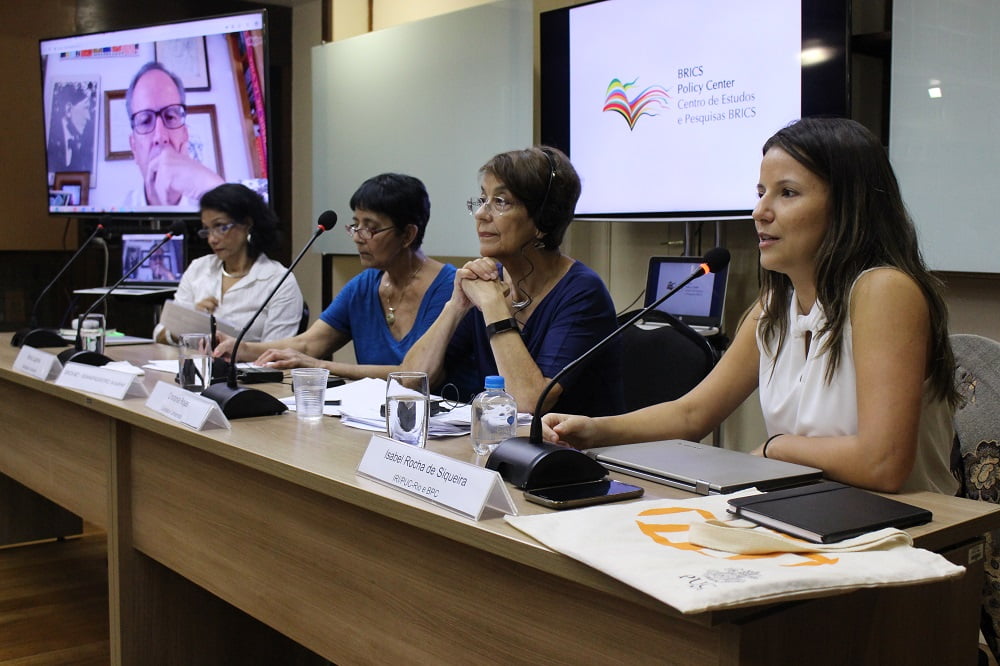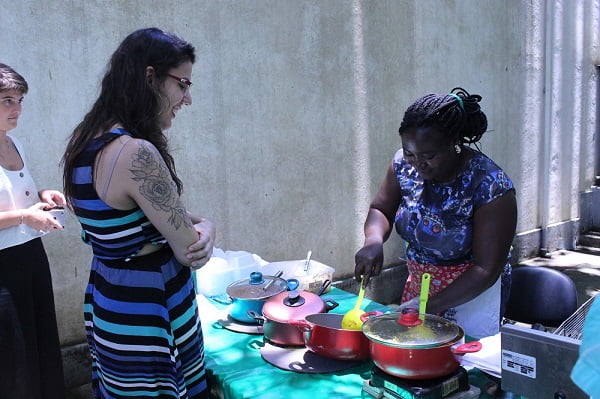
Critical Approaches to Development
On November 29 and 30, the BRICS Policy Center hosted the workshop “Critical Approaches to Development”. The event aimed to unite and discuss proposals from the Global South to rethink development in times of retreat and conservatism, as well as bring a reflection on development in the areas of gender, race and class; nature, indigenous rights and land issues; and activism, social movements and working “from within.”

Refugees from the Chega Junto collective – Lateefat Hassan, from Nigeria, Louise from Togo-Cameroon and Dionel Perez and Argelia Jimenez from Venezuela – were selling traditional foods from their countries during the workshop breaks.
The constant concern of critical development studies is to understand that Latin America has a different reality in terms of the effects of Global capitalism, according to Professor Cristina Rojas of Carleton University. She believes that this change of point of view happens with the pluralization of engaged voices.
– There is a different way of thinking about development today. The idea of development has changed thanks to events that count on the participation of indigenous populations and female protagonism in matters of extractivism, for example.
For Alberto Acosta, a model of development imposed by the US – the American way of life – has resulted in the loss of our capabilities and identities. Social inequality has increased in the name of development. According to data from 2013, eight multimillionaires own half the world’s wealth, and all of them are white men, which for Acosta reflects the reality of the planet today. The professor emphasized that there will be no social justice without ecological justice and vice versa; and that the economy must be associated with society and nature.
Cristiana Gonzalez highlighted digitalization as a tool of social transformation, since it allows the creation of community networks and the articulation of social movements, such as Kéfir, Mexican feminist network; however, she states that it is necessary to overcome the gender digital gap, ie the difference in internet access between men and women.
On the second day of the workshop, the Gross National Happinessindex was pointed out as an alternative development indicator by Bianca Suyama of the Southern Articulation. Developed in Bhutan in the 1970s, the indicator is based on the idea that economic development must be accompanied by spiritual and social development, and some of its pillars are the promotion of educational development for social inclusion; ecological resilience on the basis of sustainable development; the reduction of working hours in the promotion of free time and leisure; and gender equality and freedom of thought.
Anselmo Otavio, from UNISINOS, spoke about development in Africa. According to him, there are two main forms of development in Africa: through acceptance, as proposed by the World Bank, and through contestation, as proposed by the population. He further stated that the misery of the African continent is a consequence of imperialist practices, so Western countries have their responsibility in the recovery of Africa.

